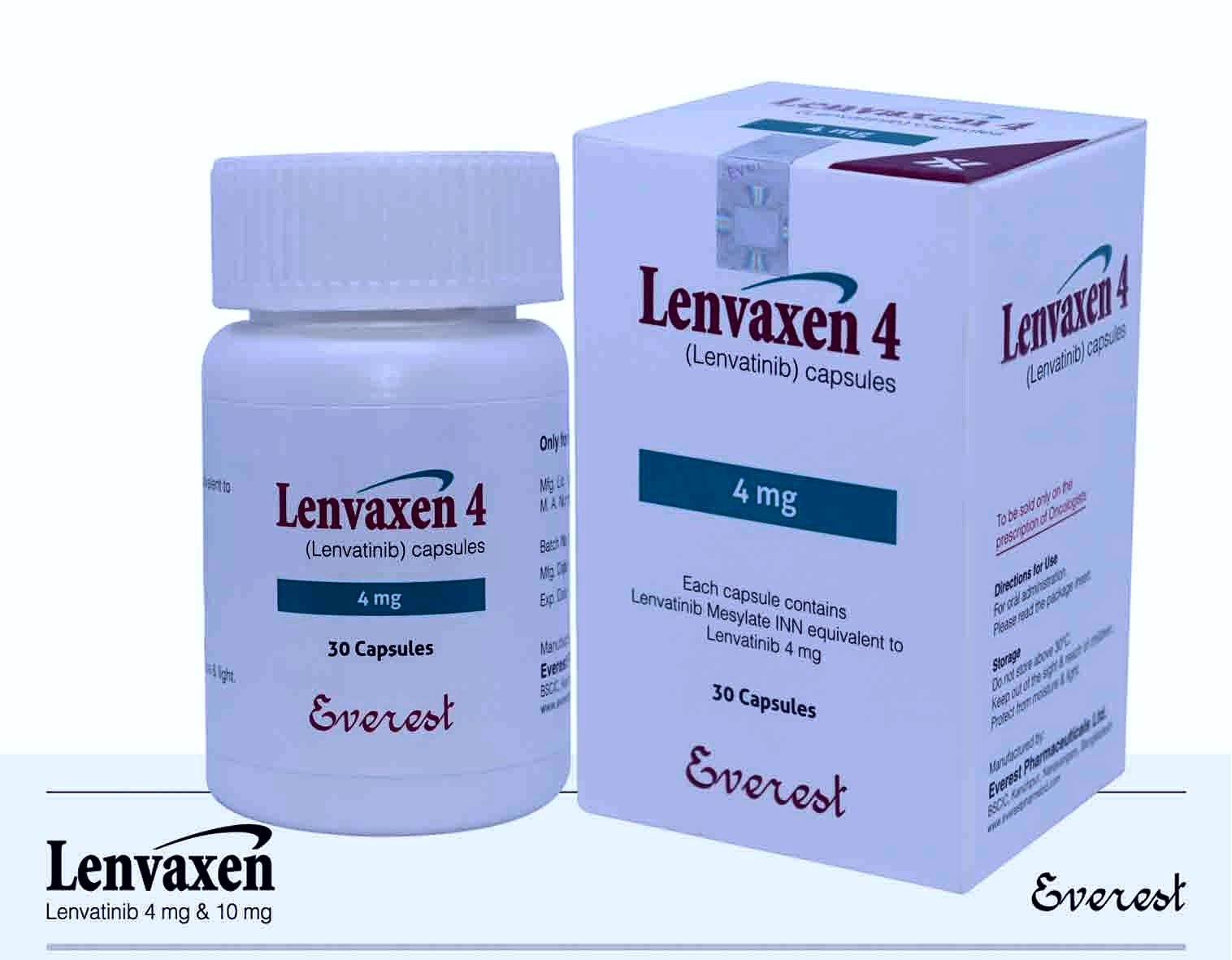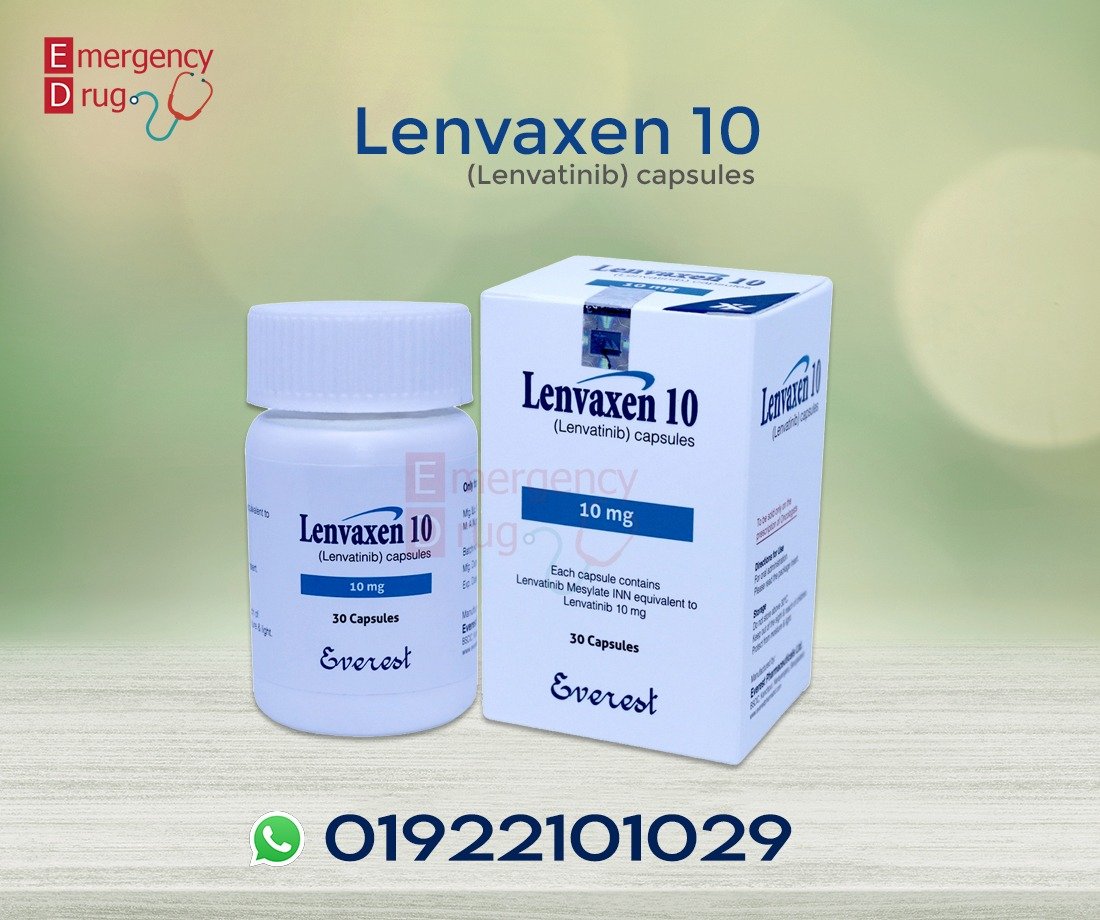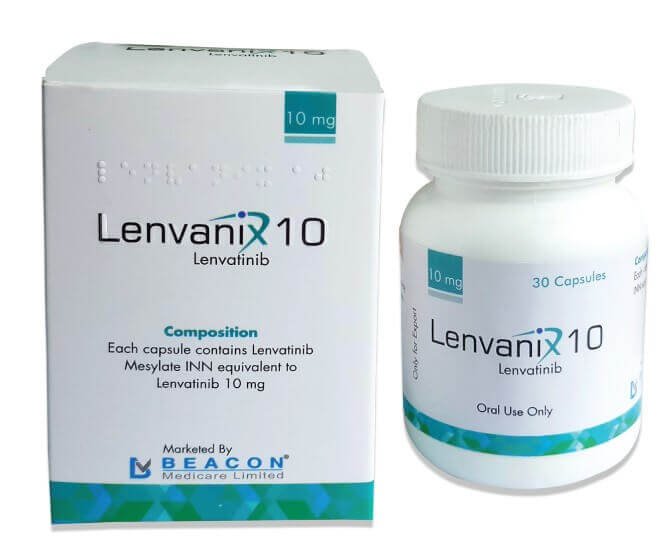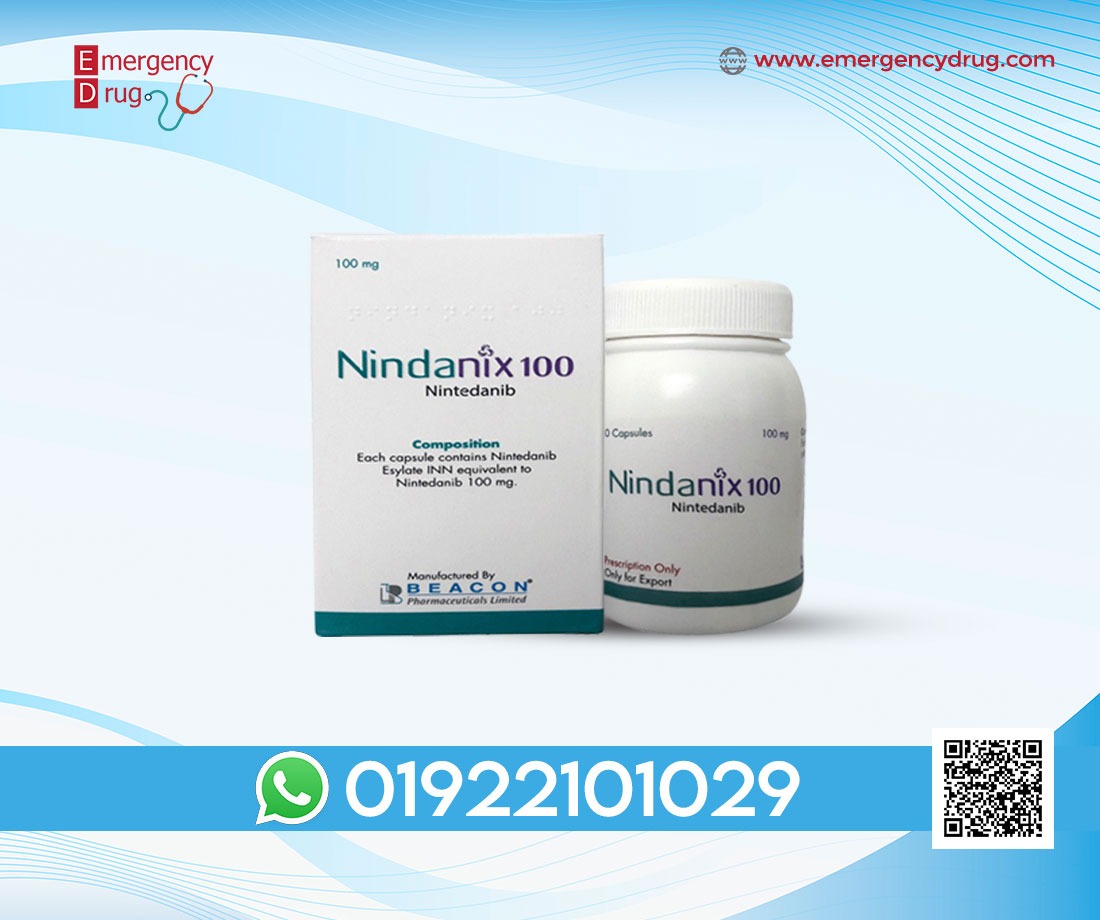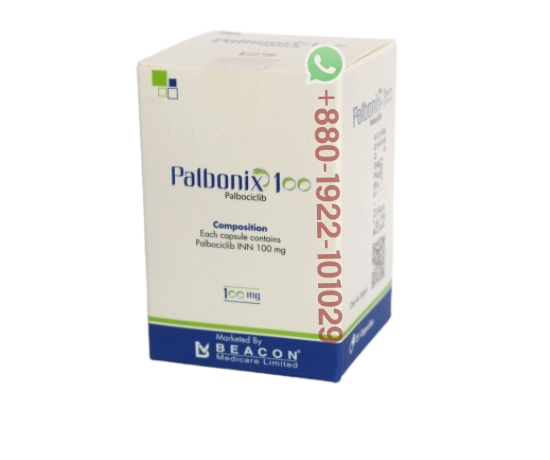
Lenvanix (Lenvatinib) 4 MG
Price: $125.00
Lenvatinib use to treat a different type of thyroid cancer that has returned or that has spread to other parts of the body and cannot treat with radioactive iodine. Lenvatinib also use along with everolimus (Afinitor, Zortress) to treat renal cell carcinoma (RCC, a type of cancer that begins in the kidney) in people who previously receive treatment with another chemotherapy medication. Lenvatinib further also use to treat hepatocellular carcinoma (HCC; a type of liver cancer) that cannot be treated with surgery. Lenvatinib use along with pembrolizumab (Keytruda) to treat a different type of cancer of the endometrium (lining of the uterus) that expands to other parts of the body or worsened during or after treatment with chemotherapy medications or that cannot treated with surgery or radiation therapy. Lenvatinib is like a class of medications call kinase inhibitors. It works with blocking the action of an abnormal protein that signals cancer cells to multiply. This helps prevent the spread of cancer cells.


Description
First new frontline treatment option for HCC approved in Japan Lenvanix (Lenvatinib) is a multi kinase inhibitor that interrupts the pathways of VEGFR1,VEGFR2 and VEGFR3.It use in the treatment of differentiated thyroid cancer (DTC), renal Cell Carcinoma and Hepatocellular Carcinoma (HCC).
Indications
Lenvatinib is a kinase inhibitor that is indicated:
- For the treatment of patients with locally recurrent or metastatic, progressive, radioactive iodine-refractory differentiated thyroid cancer (DTC).
- In combination with everolimus, for the treatment of patients with advanced renal cell carcinoma (RCC) following one prior antiangiogenic therapy.
- For the first-line treatment of patients with unresectable hepatocellular carcinoma (HCC).
Pharmacology
Based on x-ray crystallography and kinetic interaction studies, Lenvanix binds to the adenosine 5′-triphosphate binding site of VEGFR2 and to a neighboring region via a cyclopropane ring and thereby inhibits tyrosine kinase activity and associated signaling pathways.
Lenvatinib is a receptor tyrosine kinase (RTK) inhibitor that inhibits the kinase activities of vascular endothelial growth factor (VEGF) receptors VEGFR1 (FLT1), VEGFR2 (KDR), and VEGFR3 (FLT4). Lenvanix inhibits other RTKs that have been implicated in pathogenic angiogenesis, tumor growth, and cancer progression in addition to their normal cellular functions, including fibroblast growth factor (FGF) receptors FGFR1, 2, 3, and 4; the platelet derived growth factor receptor alpha (PDGFRα), KIT, and RET.
Dosage & Administration
Differentiated thyroid cancer (DTC): The recommended dosage is 24 mg orally once daily.
Renal cell carcinoma (RCC): The recommended dosage is 18 mg orally once daily with everolimus 5 mg orally once daily.
Hepatocellular carcinoma (HCC): The recommended dosage is based on actual body weight:
- 12 mg orally once daily for patients greater than or equal to 60 kg
- 8 mg orally once daily for patients less than 60 kg.
Modify the recommended daily dose for certain patients with renal or hepatic impairment.
Side Effects
For DTC, adverse reactions (incidence ≥30%) are hypertension, fatigue, diarrhea, arthralgia/myalgia, decreased appetite, decreased weight, nausea, stomatitis, headache, vomiting, proteinuria, palmarplantar erythrodysesthesia syndrome, abdominal pain, and dysphonia.
In RCC, the common adverse reactions (incidence ≥30%) for lenvatinib and everolimus are diarrhea, fatigue, arthralgia/myalgia, decreased appetite, vomiting, nausea, stomatitis/oral inflammation, hypertension, peripheral edema, cough, abdominal pain, dyspnea, rash, decreased weight, hemorrhagic events, and proteinuria.
For HCC, the most common adverse reactions (incidence ≥20%) are hypertension, fatigue, diarrhea, decreased appetite, arthralgia/myalgia, decreased weight, abdominal pain, palmar-plantar erythrodysesthesia syndrome, proteinuria, dysphonia, hemorrhagic events, hypothyroidism, and nausea.
For more Oncology medicine, visit our SHOP

